Powered by Pinaki IT Hub – Driving Knowledge for a Smarter Future
The automotive industry is at a turning point. In 2025, electric vehicles (EVs) are no longer futuristic concepts — they’re mainstream. Yet, a big question remains:
Are EVs truly sustainable for the long run?
In this blog, we’ll explore:
● What’s driving the EV revolution?
● Why the world is shifting to electric mobility?
● The challenges and hidden drawbacks of EV adoption.
● How EVs are reshaping career opportunities.
● What the future of EVs and mobility looks like.
● And how Pinaki can help you build a future-ready career in this evolving industry.
Why Are Electric Vehicles Becoming a Global Priority?
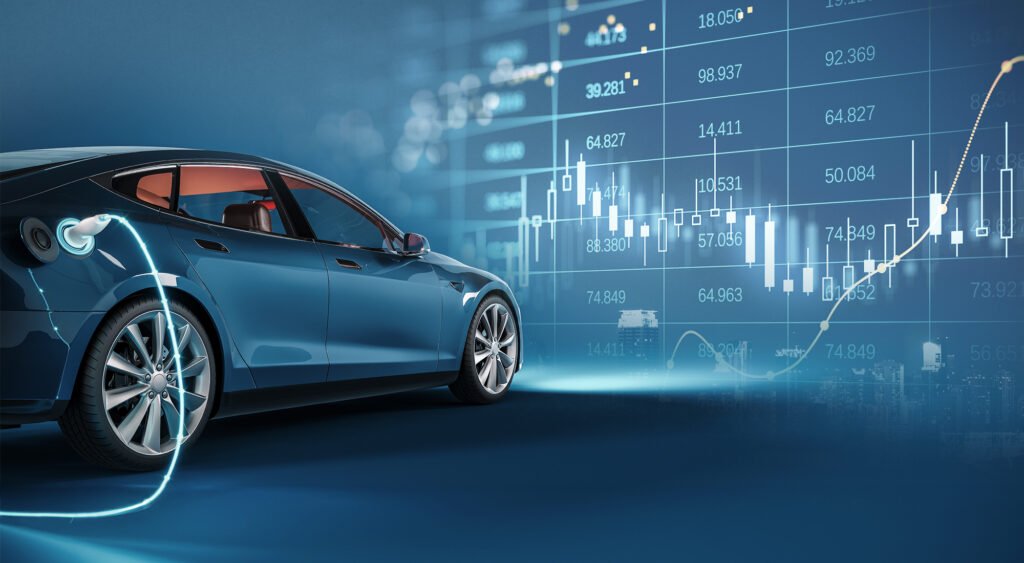
The shift toward electric vehicles (EVs) is no longer just a futuristic vision — it’s a global movement driven by environmental necessity, economic advantages, and technological innovation.
- Climate Change Crisis
Transportation is one of the largest contributors to greenhouse gas emissions, accounting for nearly 25% of global CO₂ output.
● Example: In 2023, Norway reported that over 80% of new car sales were electric, dramatically reducing urban air pollution and helping meet its ambitious carbon neutrality goals. - Rising Fuel Costs
Fluctuating oil prices make EVs a cost-efficient alternative in the long term.
● Example: After the 2022 oil price surge, countries like India saw increased interest in affordable EV scooters from brands like Ola Electric and Ather Energy, as commuters looked for ways to save on daily fuel expenses. - Government Incentives
Subsidies, tax rebates, and road tax exemptions make EV ownership more appealing.
● Example: The U.S. Inflation Reduction Act (2022) provides up to $7,500 in tax credits for electric car buyers, boosting sales of models like the Tesla Model Y and Ford Mustang Mach-E. - Technological Advancements
Improvements in battery efficiency, range, and charging speeds are addressing earlier limitations.
Example: CATL (China) recently launched a fast-charging battery capable of adding 400 km range in just 10 minutes, setting a new benchmark for EV convenience. - Urban Mobility Needs
As cities become more congested, eco-friendly transport solutions are critical for reducing pollution.
● Example: European cities like Amsterdam are rolling out dedicated EV charging networks and low-emission zones, while Tata Motors in India is supplying electric buses to major metros for sustainable public transport.
2.Are EVs Truly Sustainable in the Long Run?
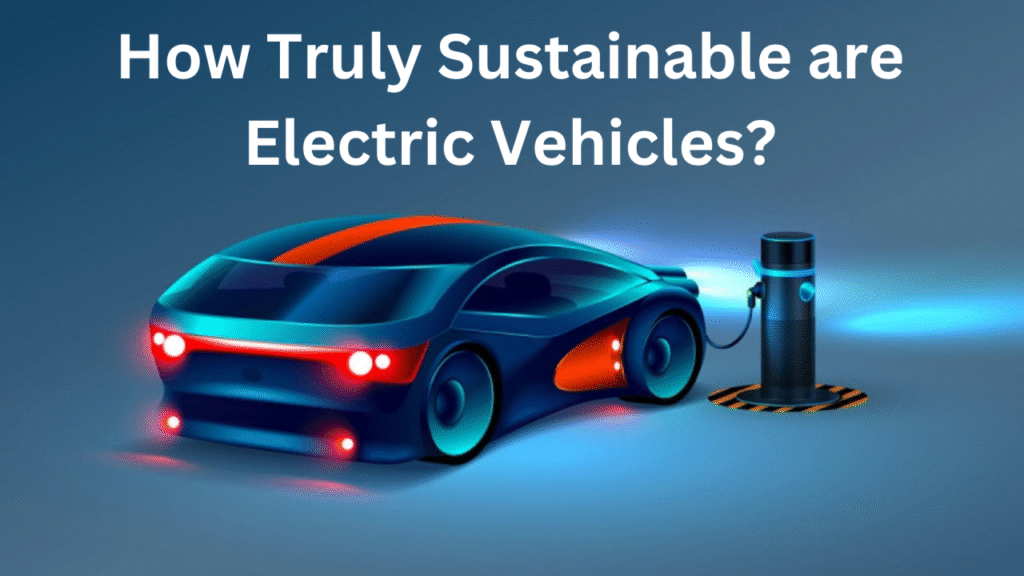
While Electric Vehicles (EVs) are often hailed as the future of clean transportation, their overall sustainability is more complex than it appears. The real question goes beyond tailpipe emissions — it’s about the entire lifecycle: production, energy source, usage, and disposal.
Key Challenges Impacting EV Sustainability
Battery Production & Rare Earth Mining
○ EV batteries require lithium, cobalt, and nickel, which are extracted through environmentally intensive mining.
○ Mining activities lead to deforestation, water contamination, and ecosystem damage.
Electricity Source Matters
○ EVs eliminate exhaust emissions, but if they are charged using coal-powered electricity, emissions simply shift from cars to power plants.
○ The true benefits are realized only in regions powered by clean energy sources like solar, wind, hydro, or nuclear.
Battery Recycling & Disposal
○ Lithium-ion batteries degrade over time, and large-scale recycling is still in its early stages.
○ Improper disposal can lead to chemical leaks, fires, and long-term environmental harm.
Infrastructure Limitations
○ Many regions still lack adequate charging stations.
○ Long charging times and “range anxiety” — the fear of running out of charge — remain major consumer concerns.
High Upfront Costs
○ Despite lower running costs, EVs remain pricier than traditional cars.
○ Many buyers are waiting for prices to drop before making the switch.
3.Then Why Should We Still Adapt to EVs?
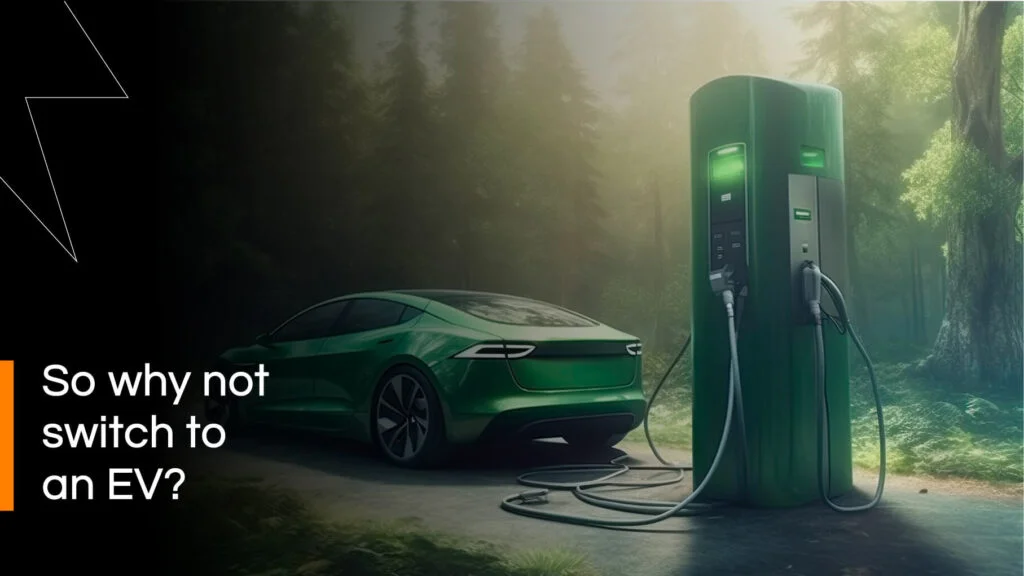
Despite concerns like charging infrastructure, battery costs, or range anxiety, transitioning to electric mobility is no longer optional—it’s a necessity. The price of ignoring this shift will be far greater than the challenges of adopting it.
Consequences of Ignoring EV Adoption
- Rising Global Temperatures & Air Pollution
○ According to the International Energy Agency (IEA), transportation contributes nearly a quarter of CO₂ emissions worldwide.
○ Cities like Delhi, Beijing, and Los Angeles already face severe air quality crises, where vehicle exhaust is a major contributor to smog and respiratory diseases.
○ Failing to adopt EVs will worsen climate change, leading to more heatwaves, floods, and environmental disasters. - Dependence on Fossil Fuels Leading to Fuel Crises & Higher Costs
○ The global oil market is highly volatile, with prices fluctuating due to geopolitical conflicts (e.g., the Russia-Ukraine war caused crude oil prices to surge in 2022).
○ Electric vehicles, powered by renewable energy sources, reduce this dependence and provide predictable long-term savings for consumers and governments alike. - Stricter Government Regulations & Penalties on High-Emission Vehicles
○ The EU plans to ban the sale of new petrol and diesel cars by 2035, while California has similar targets for 2035.
○ Automakers that fail to transition face heavy fines and shrinking markets, while consumers may face higher taxes on fossil-fuel cars. - Missed Opportunities in a Trillion-Dollar Industry
○ The global EV market is projected to surpass $1.5 trillion by 2030.
○ Companies like Tesla, BYD, Tata Motors, and Hyundai are leading innovation, creating millions of new jobs in battery manufacturing, charging infrastructure, and smart mobility solutions.
○ Delaying adoption means missing out on economic growth, new investments, and sustainable development.
4.Career Opportunities in EV & Future Mobility
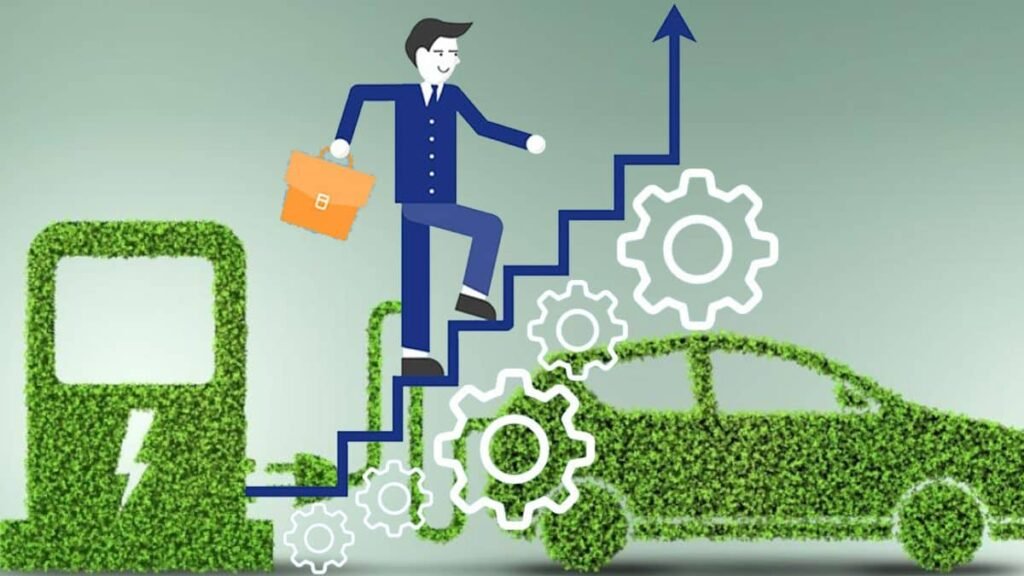
The Electric Vehicle (EV) revolution is more than a technological shift — it’s shaping a new era of transportation and creating a booming job market across multiple industries. As governments, manufacturers, and startups invest billions into clean mobility, a wave of new and specialized careers is emerging.
Key Career Roles Emerging
● Battery Engineers & Energy Storage Specialists – Innovating next-generation batteries that are lighter, more efficient, and fully recyclable to power EVs sustainably.
● EV Software Developers – Creating advanced navigation, real-time diagnostics, safety systems, and smart charging solutions that make EVs more intelligent and user-friendly.
AI & IoT Specialists – Driving the future of autonomous mobility by integrating artificial intelligence and Internet of Things (IoT) technologies for connected and self-driving vehicles.
● EV Infrastructure Experts – Developing and managing large-scale charging station networks, energy grids, and smart infrastructure to support the rapid adoption of EVs.
● Sustainability Analysts – Ensuring the entire EV lifecycle — from raw material sourcing to battery disposal — meets eco-friendly and regulatory standards.
Market Growth Outlook
● The global EV market is projected to soar to $1.4 trillion by 2030 (BloombergNEF).
● India alone is targeting 30% electric vehicle sales by 2030, potentially creating millions of new jobs in engineering, AI, energy, and infrastructure.
● Professionals with expertise in EV technology, battery innovation, AI, and sustainability will be in unprecedented demand.
5.The Future of EVs – Where Are We Headed?
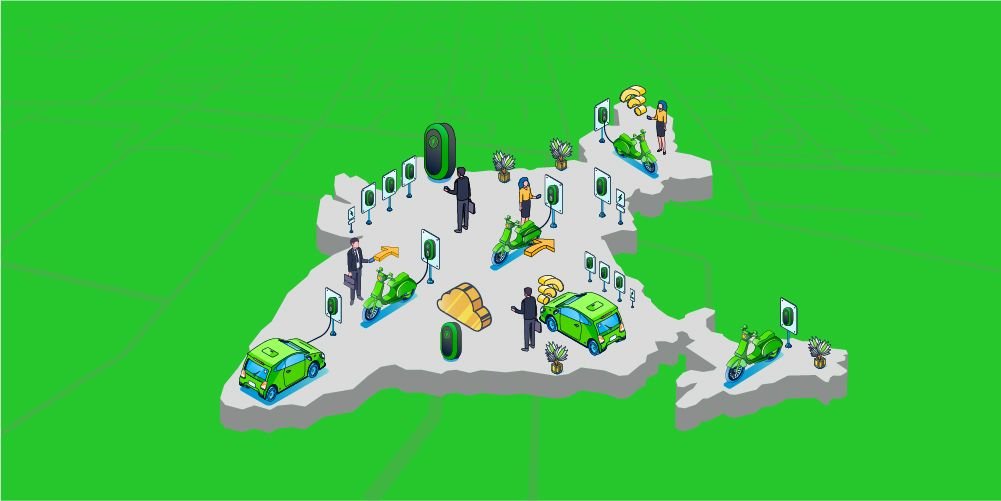
Solid-State Batteries – The next generation of batteries promises longer lifespans, ultra-fast charging times, and enhanced safety. These batteries will significantly improve EV range, reduce maintenance costs, and minimize fire risks compared to traditional lithium-ion cells.
Vehicle-to-Grid (V2G) Technology – EVs won’t just be modes of transport; they will act as mobile energy storage units. Future EVs will supply excess power back to homes, businesses, and city grids, reducing strain on energy infrastructure and supporting renewable energy integration.
Autonomous Mobility – Self-driving electric vehicles will revolutionize logistics, ride-hailing services, and public transport by improving safety, efficiency, and accessibility while reducing congestion and traffic emissions.
Smart Cities & Green Policies – With AI-powered traffic management systems and renewable-powered infrastructure, EVs will seamlessly integrate into the ecosystem of smart cities. Governments worldwide are already setting ambitious green targets and offering incentives to accelerate EV adoption.
By 2040, electric mobility will no longer be an alternative; it will be the standard — reshaping industries, economies, and urban landscapes.
6.How Pinaki IT Hub Helps You Build a Career in Future Mobility
At Pinaki IT Hub, we see Electric Vehicles (EVs) and Smart Mobility not just as a technological evolution but as a career-defining revolution that opens doors to global opportunities.
Why Choose Pinaki IT Hub?
● Industry-Tailored Learning
Gain specialized knowledge through courses on EV software development, battery management systems, AI-powered automotive solutions, and data-driven analytics for smarter, safer mobility.
● Hands-On Training
Work on real-time projects like EV charging infrastructure simulations, IoT-based vehicle tracking, and predictive maintenance systems — ensuring you graduate with practical expertise.
● Global Collaboration
Learn from global advancements through our strategic partnership with DBSL (UK), giving you access to cutting-edge international EV technologies and trends.
● Future-Focused Curriculum
Stay ahead of the curve with regularly updated modules on emerging technologies, sustainable design, and regulatory frameworks shaping the future of mobility.
● Career Support & Placement Benefit from personalized career guidance and direct connections with top automotive, AI, and clean-tech companies actively recruiting EV specialists.
At Pinaki IT Hub, we don’t just teach EV technology; we shape future-ready professionals to lead the next era of mobility innovation.
The EV industry isn’t just about cleaner cars — it’s about building a smarter, more sustainable world. But to thrive in this future, professionals must adapt, upskill, and specialize in areas shaping mobility for decades to come.
Ready to be part of the EV revolution? Join Pinaki IT Hub and get trained in Future Mobility, AI-Driven Automotive Tech, and Sustainable Innovation.
Explore Programs at www.pinakiithub.com Be the professional who drives the future — not just rides it.
